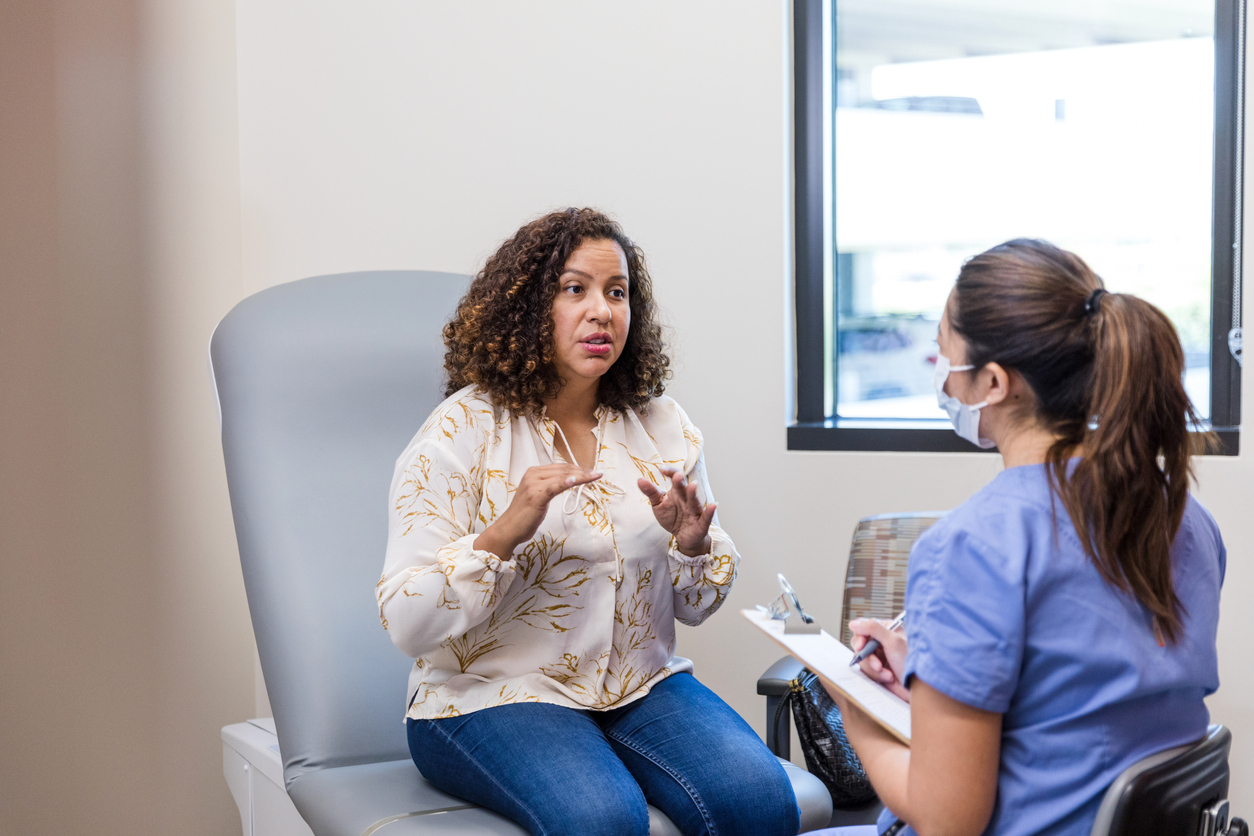Understanding Menopause

Menopause, a natural phase in a woman’s life, brings with it a range of changes and uncertainties. Defined as the cessation of menstruation for 12 consecutive months, it marks the end of a woman’s reproductive years. This transition is often accompanied by various physical and emotional symptoms, ranging from hot flashes to mood swings. There are estrogen receptors on most organs of the body, so as estrogen drops, the range of associated symptoms can be vast, and different for all women. Understanding the stages of menopause and debunking common myths surrounding it are crucial steps in empowering women to navigate this transformative journey.
Pre-Menopause: Recognizing the Early Signs
Pre-menopause, typically occurring in a woman’s 40s, is characterized by subtle changes in hormonal levels. Women may experience irregular periods, mood swings, and fluctuations in menstrual flow. Common symptoms include hot flashes, night sweats, and changes in libido. Dr. Michelena emphasizes the importance of recognizing these signs early on to facilitate proactive steps in addressing health needs and preparing for the transition ahead.
“Recognizing the signs of pre-menopause allows women to take control of their health and make informed decisions about their well-being, as well as being proactive for what is to come.” – Dr. Samantha Michelena
Facts:
- Hormonal fluctuations during pre-menopause can lead to changes in menstrual patterns and symptoms like hot flashes, night sweats, sleep disturbances, and mood changes.
- Menopause is a gradual process, and symptoms may vary widely among individuals.
Common Symptoms of Pre-Menopause:
- Irregular periods
- Mood swings
- Fluctuations in menstrual flow
- Hot flashes
- Night sweats
- Changes in libido
Myths:
- Pre-menopause only affects women in their 40s and 50s.
- Symptoms of menopause always start suddenly.
Treatment Options: Comprehensive gynecological care during pre-menopause involves personalized consultations and diagnostic evaluations to assess hormonal status and address concerns. Treatment options may include hormone therapy, lifestyle modifications, and non-hormonal medications tailored to individual needs and preferences.
Peri-Menopause: Managing Challenges Effectively
As women transition into peri-menopause, they may encounter various challenges, including hot flashes, sleep disturbances, and changes in libido. Dr. Michelena emphasizes the significance of tailored care plans to manage these symptoms effectively. Factoring in lifestyle changes, hormone therapy, and non-hormonal medications, the focus is on providing holistic support. Additionally, comprehensive gynecological care addresses issues such as vaginal dryness, urinary incontinence, and sexual dysfunction.
“Effective management of peri-menopausal symptoms involves addressing each woman’s unique needs and providing personalized care.” – Dr. Samantha Michelena
Facts:
- Peri-menopause can last for several years before menopause is reached.
- Hormonal fluctuations during peri-menopause can impact mood and energy levels.
Common Symptoms of Peri-Menopause:
- Hot flashes
- Night sweats
- Sleep disturbances
- Changes in libido
- Vaginal dryness
- Urinary incontinence
- Sexual dysfunction
- Brain fog
- Joint pain
- Skin changes
- Hair thinning/loss
Myths:
- Hormone therapy is the only treatment option for managing symptoms.
- Peri-menopause symptoms are the same for all women.
Post-Menopause: Embracing a New Chapter
Post-menopause brings new considerations, including an increased risk of osteoporosis and cardiovascular disease. Dr. Michelena underscores the importance of preventive measures and regular screenings to maintain overall health during this stage. Screening for osteoporosis and cardiovascular disease, along with counseling on lifestyle modifications and managing chronic conditions, is essential. Addressing emotional health and intimacy concerns, resources and guidance are provided to help women thrive in this new phase of life.
“Post-menopause is not the end but the beginning of a new chapter, where women can focus on their health and well-being with renewed vitality.” – Dr. Samantha Michelena
Facts:
- Post-menopausal women are at higher risk of osteoporosis due to decreased estrogen levels.
- Regular exercise and a healthy diet can help reduce the risk of cardiovascular disease during post-menopause.
Common Symptoms of Post-Menopause:
- Osteoporosis
- Cardiovascular disease
- Emotional health concerns
- Intimacy issues
Myths:
- Menopause marks the end of a woman’s sexual desire.
- Emotional health concerns during post-menopause are not significant.
Menopause represents a significant milestone in a woman’s life, signaling the end of her reproductive years. By understanding the stages of menopause, women can better understand and navigate this natural transition. With personalized care and holistic support, women can embrace this new chapter, focusing on their health and well-being. If you would like to learn more, the North American Menopause Society (NAMS) and Galveston Diet Websites are excellent resources for more information.
Dr. Samantha Michelena, MD, is a compassionate obstetrician and gynecologist with a fervent dedication to women’s health. Specializing in adolescent health, minimally invasive surgery, and high-risk obstetrics, Dr. Michelena values patient-centered care, close collaboration, and tailoring treatments to meet individual needs. As a proud Fellow in the American College of Obstetricians and Gynecologists and board-certified by the American Board of Obstetrics and Gynecology, she upholds the highest standards of excellence in her practice. She is also a member of North American Menopause Society (NAMS). Whether performing in-office endometrial ablations or enjoying outdoor adventures with her family, Dr. Michelena’s unwavering dedication to women’s health makes her a trusted advocate and ally for women across Wyoming and beyond.Top of Form

